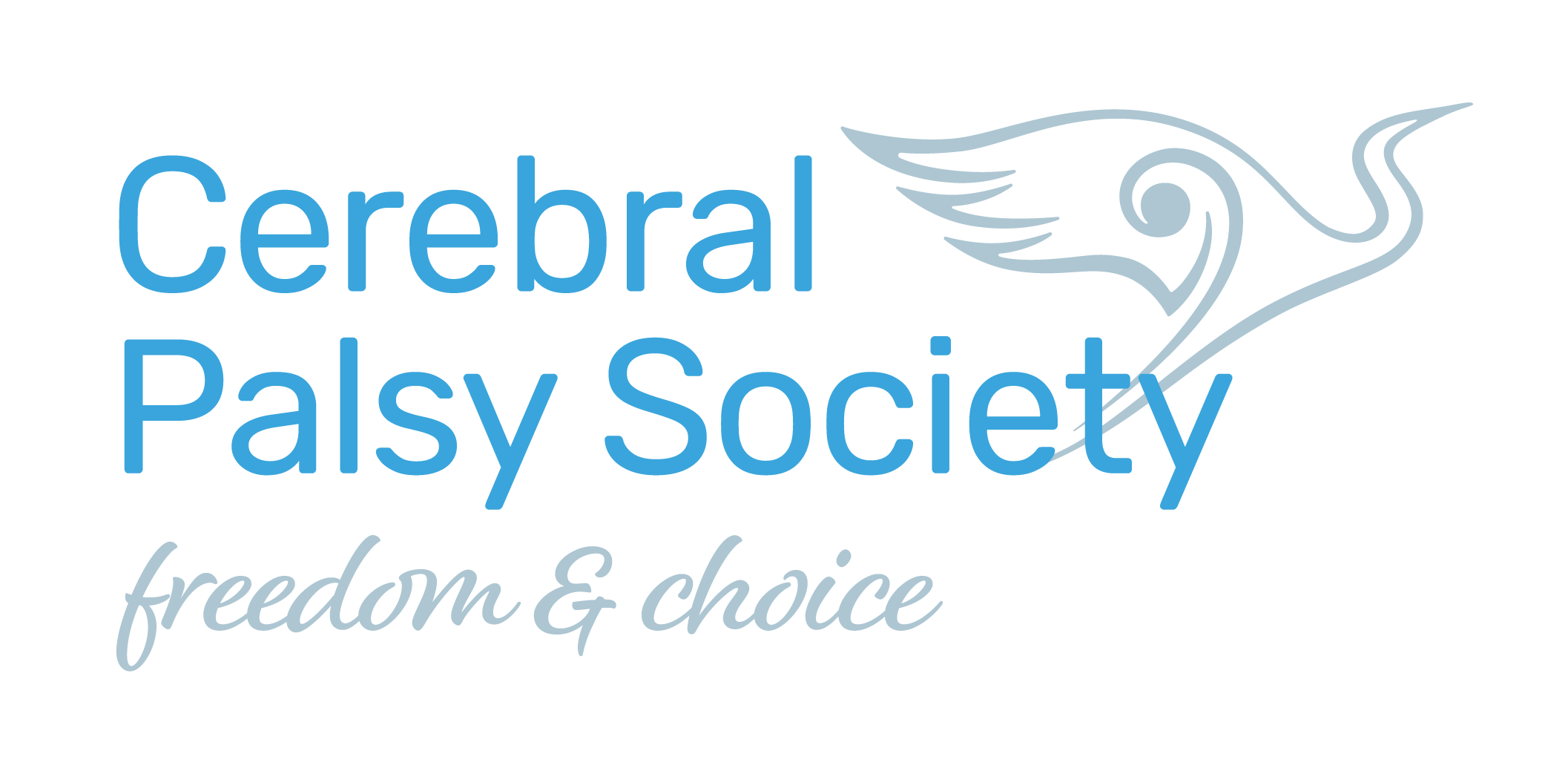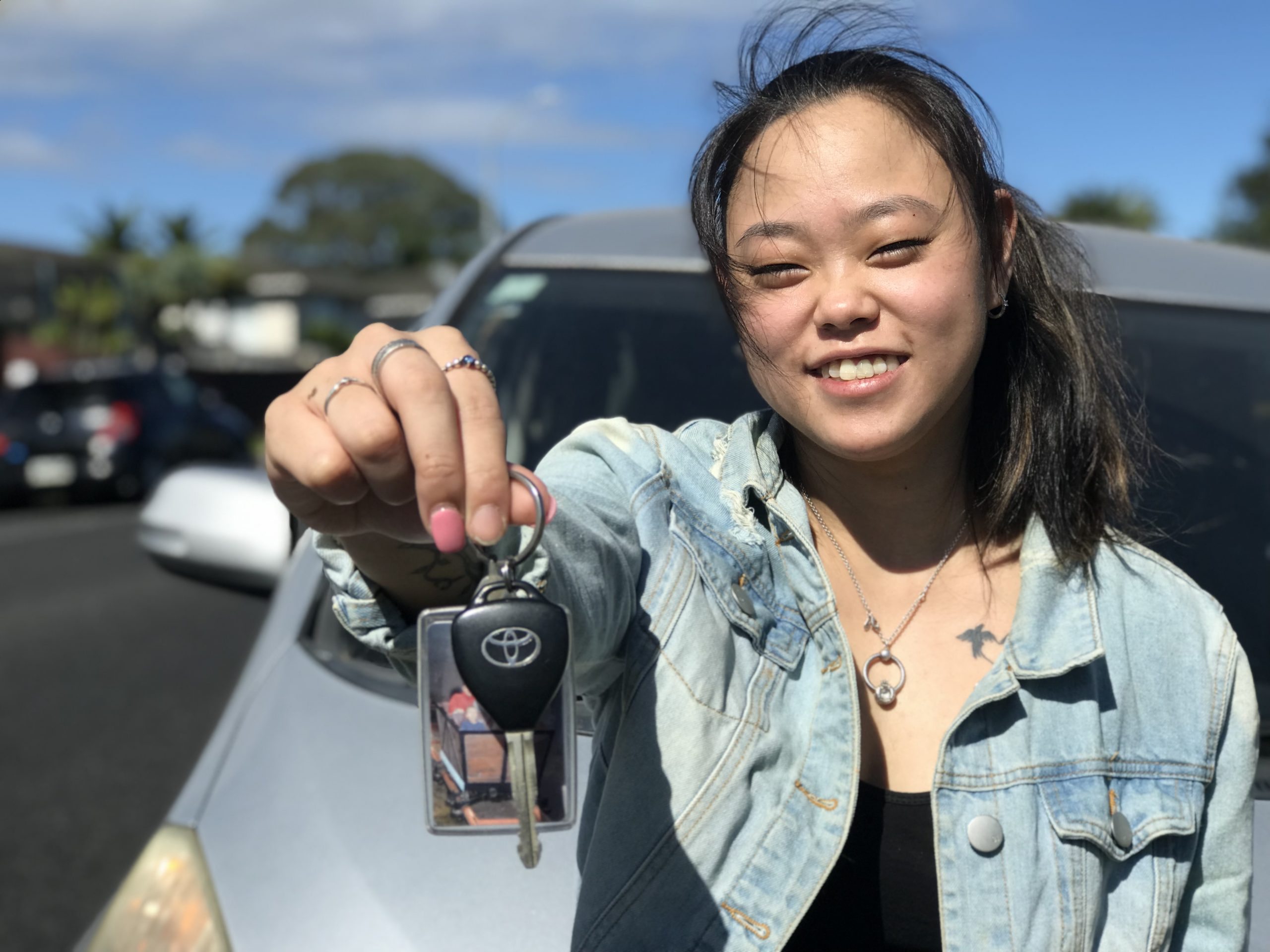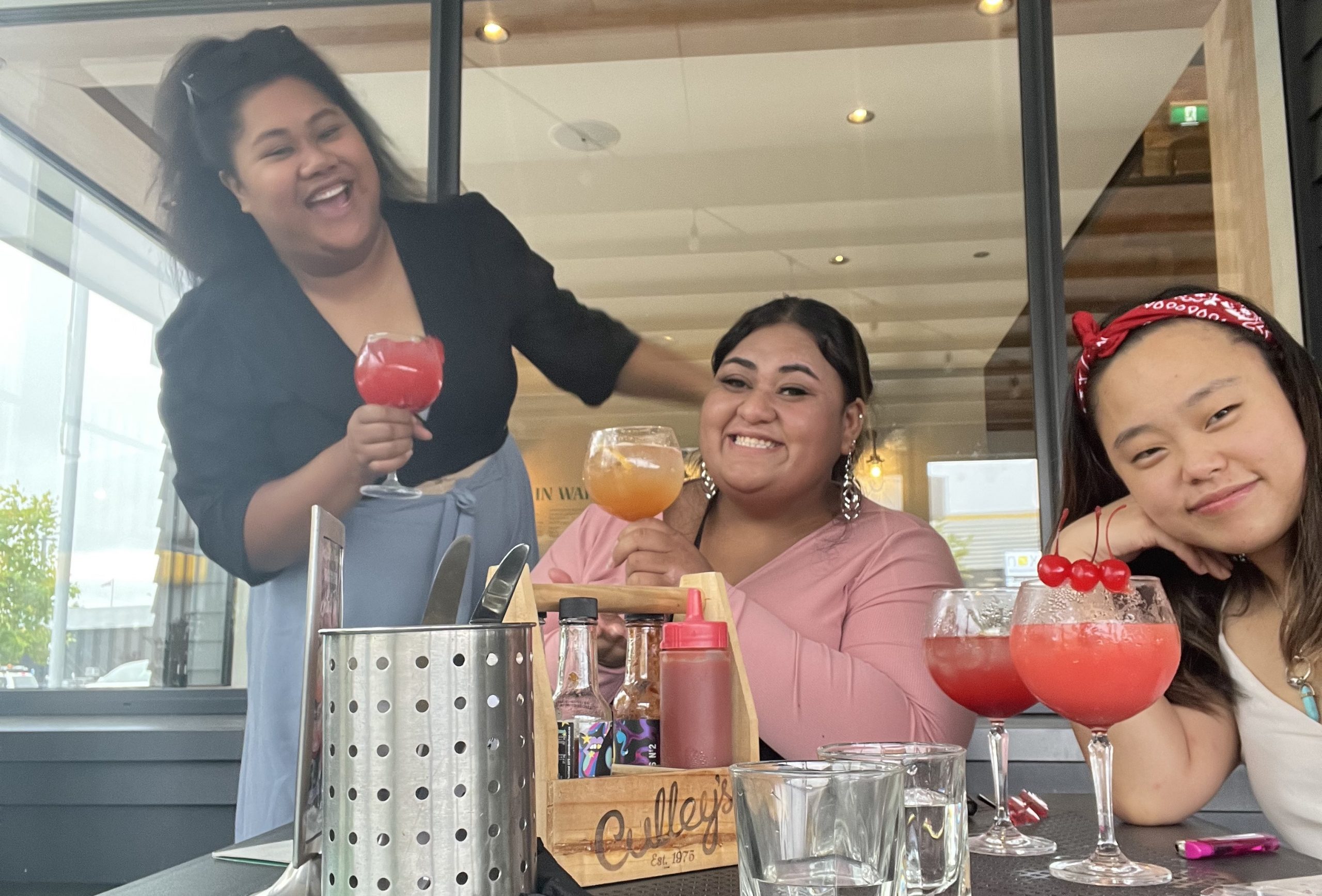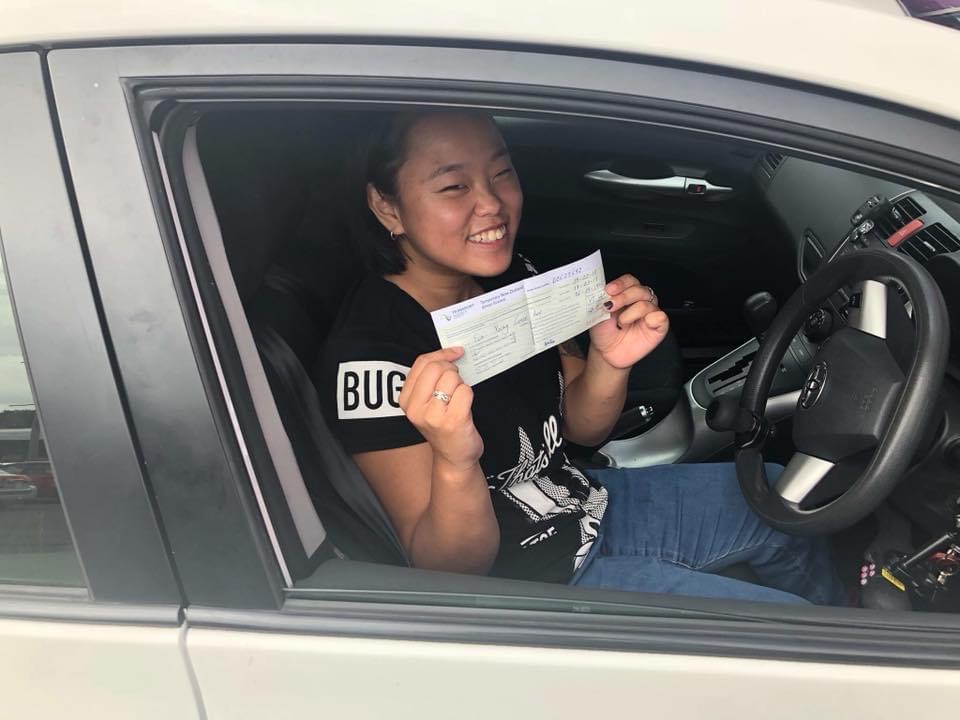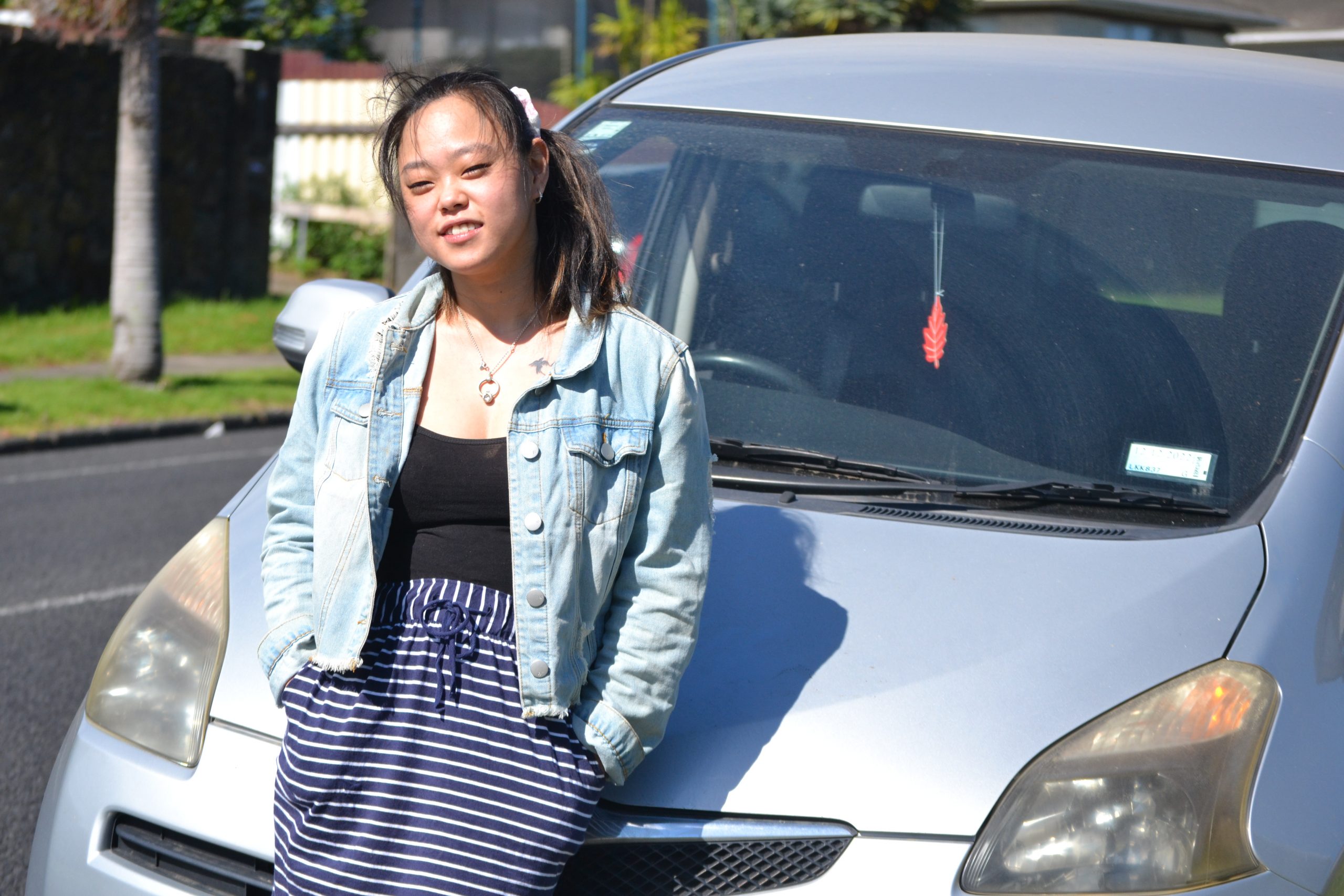Our Members - Their Stories
Getting behind the wheel is “a good feeling”
23 Jun 2022
The ability to drive places has brought freedom and spontaneity into Grace Lee’s life – but getting her licence wasn’t without its challenges.
By Melanie Louden
In many ways, Grace Lee is your typical young adult.
She’s completed high school, attended university, gone flatting, participated in cultural performances and sports, and holds down a job she enjoys.
However, unlike most young adults, Grace had to jump through a fair few extra hoops to get her driver’s licence, and her first car.
The 26-year-old was born four months premature and was diagnosed with Congenital Cerebral Palsy Spastic Diplegia which affects her balance.
“I can walk unaided, but balance is an issue. One foot turns in when I walk. And my fine motor skills can be an issue,” says the determined and fiercely independent South-Aucklander.
Grace works at First Security as a Communications Operator where she checks on the welfare of guards and dispatches alarm jobs.
She is a self-declared foodie – she loves a good pasta – and enjoys hanging out with her friends. They often go to the mall or the movies, or into the city to explore and eat.
But as a young adult with a disability, not being able to drive was “quite annoying”.
Spending time with her friends is an important part of Grace Lee’s life.
For Grace, the barrier to driving was about accessing providers of disabled driving lessons, paying for specialised lessons in a modified vehicle, and paying for the modifications to a car.
“I had to take public transport which was quite tiring for me because I can’t walk long distances. But it’s hard to keep my balance on moving and crowded trains and buses.”
To help reduce her public transport costs, the amount of time spent waiting, and the amount of walking she needed to do to catch public transport, Grace moved out of home once she finished high school.
She moved to the city to be closer to AUT while she was studying. While the move reduced her reliance on public transport somewhat, living in the city also came with high rent prices.
“Everything in the city was central, but even then, I still had to take public transport. Living in the city meant people had to visit me, and for them that meant paying for parking. It wasn’t ideal.”
Grace started exploring the options for getting driving lessons and a modified car.
Thanks to the help of her dad, her own savings and an Individual Grant from the Cerebral Palsy Society in 2015, Grace was able to pay for driving lessons.
She says when she was learning to drive, she was “very nervous – that’s for sure”.
“It’s all about building confidence and practicing as often as you can.”
Before she could request funding for a car, she had to have her restricted licence.
Grace “surprised” herself by passing her restricted licence in 2018, pictured.
A funding application to the Lottery Grants Board helped her secure her first car, a silver Toyota Ractis, and carry out modifications, in 2019.
She operates her car using hand controls for the brake and accelerator. It is also fitted with a harness to help her sit up right in the driver’s seat, which she uses as well as a seatbelt.
Grace says another hurdle she faced when trying to get her licence and a car, was knowing what she could and couldn’t get funding for, and who to ask.
As for life with a driver’s licence – Grace says her life has “definitely changed”.
“It’s made it so much easier. I enjoy the independence.
“It’s really funny because I get to drive my parents around now – it really shows my growth.”
“It’s funny how the roles have switched. It’s a good feeling. I can go where I want to go without having to wait for anyone else.”
She can now shop for groceries with ease, instead of relying on online shopping or heading to the supermarket via taxi and having to add the fare to the bill.
Grace also enjoys the fact her life is no longer so heavily scheduled and routine.
Grace says getting her driver’s licence gave her a renewed since of freedom and independence. Photo: Melanie Louden.
Once, there was a complete lack of variety and spontaneity as her days largely revolved around train timetables.
“Having a car and a licence means more independence and that is one of the biggest things for me because I hate asking people for help.
“For me, being able to go out and to do my own thing is massive.
“It definitely improves your quality of life.”
This article was originally published in the May-Aug 2022 edition of The Review magazine.
For more information:
Melanie Louden
Communications Manager
melanie@cpsociety.org.nz
Mobile: 022 087 8191
